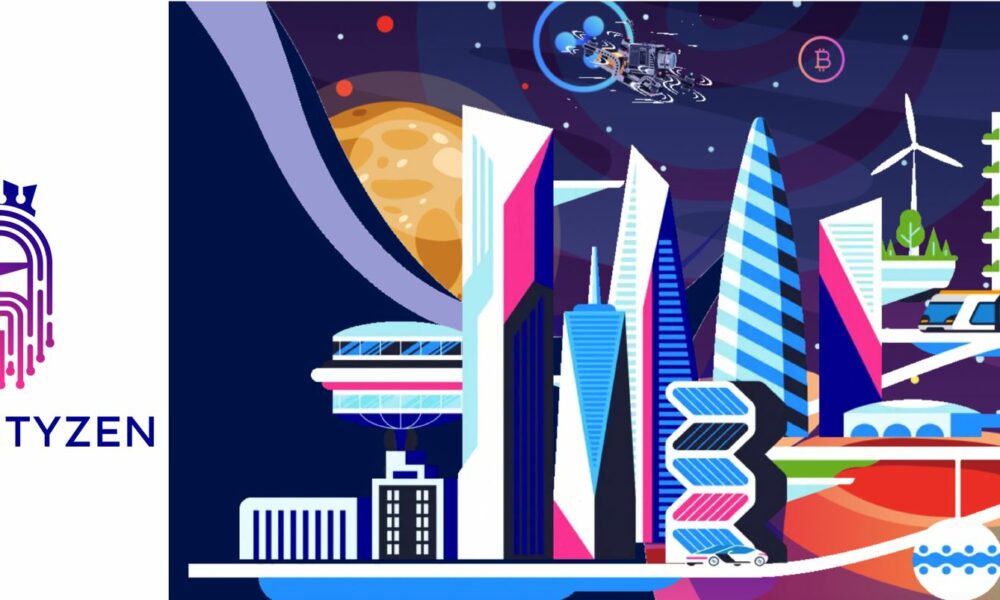There’s been a lot of buzz about the metaverse, but not really very little understanding of it. The topic is quite literally out-of-this-world and hard for most people to wrap their heads around. Most explanations of the metaverse are over-complicated, but it doesn’t have to be. One of the biggest questions being asked around this is how can I become a citizen of the metaverse?
In October, Mark Zuckerberg changed Facebook’s name to Meta, indicative of a new direction for the future, not only the company but our world. The concept solicited both praise and condemnation globally from people who were excited about the possibilities that the metaverse would open up and from people who worried about the potential negative impacts it could have on the world and on how people interact with one another.
As one looks at the concept of the metaverse, there have been a number of different options one sees, from a simple 2D interactive platform to a fully illustrated world where people would need to use a virtual reality (VR) headset and be “transported” into their own virtual world.
The metaverse — as a concept — is not contingent on VR headsets. The simple Oxford Definition of a metaverse is “a virtual-reality space in which users can interact with a computer-generated environment and other users”. In the most simplest form, a metaverse is a virtual-reality space, (but this space can be accessed in 2D and accessed through a screen). In fact, there are metaverses today, easily accessible through the internet with your laptop.
In the metaverse, users can have their own homes, personal belongings, but also with belongings and a view they never imagined possible to own. People could travel — virtually — to other parts of the world, and meet and have discussions with friends that are thousands of miles away. They could feel as though they are working in their office, with 3D avatars of their colleagues around them, from the comfort of their own homes. People could create their own “worlds”, designing places, spaces, and other things like games, where they could then virtually experience.
One way in which metaverses already exist today and is accessible is through games. Games that have created alternative universes — or enable users to create their own alternative universe — are metaverse games. One such game is “The Sandbox’, where players can create their own universe by exploring, gathering and combining resources, such as dirt and water to create mud or mechanical items to create more complex items. One of the most interesting things about recent metaverse games is their ability to have a real-life impact in our daily lives. In “The Sandbox”, for instance, players can gather $SAND cryptocurrency when they buy and sell land in the game, but they could sell this cryptocurrency and convert it to their national currencies (FIAT), thereby increasing their purchasing power in society.
The concept of the metaverse has become increasingly interesting, not least because companies are finding ways to make metaverses more interactive, but also because they could have a serious impact on a range of other industries beyond the gaming industry. The metaverse has serious potential to alter the future of other industries like the sports, arts, music, and even the real estate industry. Soon enough, we may not need to travel to physical venues to attend concerts or be part of sports programs. With the metaverse, we can feel that we are there, in a totally immersive experience. As for the real estate industry, there are already companies out there dedicated to virtual real estate. If people are to create homes and spaces within the metaverse and are to interact extensively in these spaces, there is no reason to believe that they would not pay to purchase land or a ready-made space.
The metaverse is here and the metaverse is now. Sooner or later, most of the world will become more familiar with the concept, as it is the inevitable but exciting direction that our world is heading in.
With this in mind, the team from Dual Cityzen, has created a Metaverse that aims to take influencers to the next level. By providing the infrastructure influencers need to build thriving Metaverse communities, large-scale adoption will become a reality. Equipped with Web 3.0 governance, access tokens & powered by innovative NFT solutions, Dual Cityzen empowers you to build and take control of your own Metaverse Communities.
Influencers, who are one of the key drivers of online engagement and adoption today, now account for more than 50 million users globally, Influencer entities include professional & collegiate sports clubs, legacy media properties, and verified groups such as athletes, content streamers & celebrities. Influencers are some of the most trusted entities on Earth and have grown exponentially in their importance to global consumption.
The Dual Cityzen metaverse will be a blockchain-based, decentralized community framework that empowers Influencers, and will make the Metaverse a much more equitable space than the centralized platforms of social media. Powered by the immersive technology tools of extended reality (XR), dual cityzen creates personalized metaverse communities for Influencers that provide the resources to build, grow, and monetize their assets and fanbase
Dual Cityzen is in the prime position to take the influencer economy to the next level, through utilizing the best that the ownership economy has to offer, and leverage the Web 3.0 tools available to deliver true value that influencers can pass on to fans as well as brands. The question influencers should be asking themselves, is “When will I get my Dual Cityzenship?”
Disclaimer: This is a paid post and should not be treated as news/advice.


